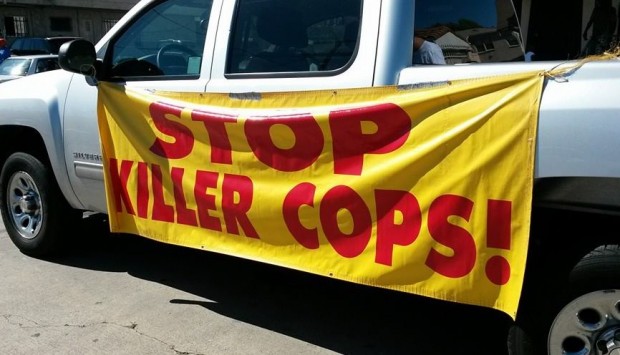 The Rebel in the Red Scarf profiles Dr. Jesse Epps, Founder and President of the National Union of American Families and a man that has seen the Civil Rights Movement from its very beginnings, working closely with Rev. Dr. Martin Luther King, Jr.
The Rebel in the Red Scarf profiles Dr. Jesse Epps, Founder and President of the National Union of American Families and a man that has seen the Civil Rights Movement from its very beginnings, working closely with Rev. Dr. Martin Luther King, Jr.
The Voice, The Rebel in the Red Scarf
Born in the farming community of Dublin during the heart of the depression and the segregation of Jim Crow Mississippi, Jesse Epps made an early acquaintance with the struggles of individuals and their families. He is the second youngest of 15 children. His father was a graduate of Alcorn University, owned a small farm, and was the first black man registered to vote in their poll-taxed, racially discriminating county.
Epps studied labor relations at Syracuse, Rutgers, and Cornell Universities and has spent the last 40 years fighting for and defending the rights and conditions of all working men and women. He began his professional labor experience working for the International Union of Electrical Workers at Local 320 in Syracuse, NY, where he served as chief steward and as an executive board member on the Educational and Civil Rights Committees.
From 1960-1972 Epps served as assistant to the international president of the American Federation of State, County, and Municipal Employees (AFSCME). In that capacity he assisted in the oversight and direction of an international field staff of officers and volunteers which numbered more than 18,000. He personally directed field operations in Atlanta, Baltimore, Cincinnati, Cleveland, Memphis, Miami, New Orleans, and New York City, and directed state-wide operations in Ohio and New York.
It was while he was serving at the AFSCME that Epps was sent to Memphis in the spring of 1968 to assist in settling the sanitation workers’ strike in that city. Suffering from significantly lower wages than their white counterparts, practically non-existent benefits, and inhuman working conditions, the battle cry authored by these men was simply, “I am a man.” In the waning days of this monumental struggle for simple human dignity and compensation, Dr. Martin Luther King, Jr., agreed to the request of AFSCME officials for the inspiration and exposure that his involvement would lend to the struggle. The strike ended with the tragic assassination of Dr. King. In spite of this tragedy, or perhaps as a result of it, Epps and the AFSCME successfully negotiated a contract for the 1,300 striking sanitation workers.
From 1964-1968 Epps was an advisor to President Lyndon B. Johnson’s White House on the participation of young people, students, and minorities both in the Democratic Party and the government in general. With Vice President Hubert H. Humphrey serving as co-chairperson, this team of advisors assisted President Johnson in navigating and productively involving students and minorities in the governmental process during those turbulent and struggling social and political times.
.
Epps also serves and champions equality, fair treatment, and justice outside the workplace. He is a lifetime member of the NAACP, reorganizing its local chapter of Central New York at Syracuse in 1958 and subsequently serving as its president, as well as serving on the New York state board of the NAACP. More recently Epps served as co-chairperson on the Labor and Industry Committee of the Philadelphia Branch, and currently serves on its Executive Board. Also in New York, Epps assisted in the organization of the American Civil Liberties Union (ACLU) of Central New York, and also served as a co-chairperson.
While continuing his involvement with the mission of the NAACP, the AFL-CIO, and other local, national, and international labor entities, Epps has been involved in the organization or operation of various other social bodies. Over his lifetime he has served the Mississippi Voters League, the Congress of Racial Equality (C.O.R.E.), and the National Housing Committee of the African Methodist Episcopal Church. As an appointee of President Johnson, Epps served on a task force that led to the legislation that established the Office of Economic Opportunity which is responsible for such current programs as Head Start.
To be an effective advocate for the people, there is no greater attribute than to have connectivity to the avenues of power. Through his tireless efforts over many years of activity in labor and social causes, Epps has developed such connectivity to influential people in the arenas of government, politics, labor, and religion. A lifetime participant, witness and true believer in collective bargaining as a tool for working people and their families, as well as a citizen activist and advocate, he has focused his energies in recent years on establishing the National Union of American Families (NUAF). The NUAF is essentially a marriage between the two philosophies. Epps’ vision of collective bargaining as a tool for the community gives working families of all races, colors, creeds control to improve the quality of life both in the workplace and out.
This is a question and answer interview about how Dr. Epps feels about the civil rights moment&n his& prospective on the Occupy Movement this interview took two days to complete talk about the last hour of Dr king last Hour of his life.
 The Voice : So Dr Epps what are the commonality in The Occupy movement The Civil Right Movement?
The Voice : So Dr Epps what are the commonality in The Occupy movement The Civil Right Movement?
DR Epps: The Occupy and Civil right Movements are similar in one objective that is the fulfillment
of the principles of the Declaration Of Independence And the Constitution Of The United State of America.
The Voice: So What Are the Differences?
Dr.Epps: The apparent Difference is the method of tactics use by these groups
The Voice: How do you feel that Dr. King would Feel About the Occupy Movement?
Dr Epps: He would Embrace and support them because of their Non-violent tactics and there focus on the fulfillment of the Declaration of Independence And the Constitution
The Voice : What made you so interested in social movements?
Dr Epps: I was reared in an environment of discrimination and mistreatment of individuals because of there color however my parents were god fearing people who taught us to love everybody.
The Voice : How was Dr King On April 4th 1968?
Dr. Epps: He reflected his normal demeanor of self-sacrifice and service Dr King had Personal relationship with many clergy in Memphis including DR H Ralph Jackson Rev Ezekiel Bell Rev Kyle’s William Lacey Dr king and myself were in a strategy with Dr. King When Rev. Kyles Came and was ready to pick up Dr King He was not ready because of the meeting went long then expected so we were leaving and as we were got back to the hotel we heard the news that Dr king had been shot.


More Stories
What happened to Jared Taylor?
Had a great time at the RNC (mostly because we’re nuts)!
All Out for April 23, Stone Mountain Georgia